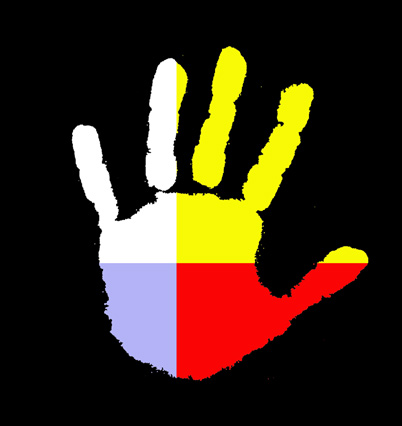Douglas Spotted Eagle Jazz? New Age? Pop? Ethnic? Native American? World Beat?Call it what you'd like, it's very difficult to pigeonhole Douglas Spotted Eagle's music. His expressions span so many genre's and bin cards, he seems to defy nearly every label put upon his musical taste. Having released classical forms, jazz, rock, pop, and what he terms "modern ethnic" blends of traditional Native music forms and contemporary sensibilities, his constantly shifting sound focuses around one instrument. The Native American Flute. Already world renown as a virtuoso performer on Native American flute and a preeminent composer of contemporary ethnic music, Douglas Spotted Eagle received a Grammy Award for his production of "Gathering of Nations Powwow." He made his Higher Octave album debut with "PRAY", a musical and spiritual journey combining ancient and progressive sensibilities in a dazzling multicultural context. Now he has recently releasedd his second solo project on the Higher Octave/Virgin label, entitled, "VOICES." Introduced to Higher Octave fans through his work on Craig Chaquico's "Once in a Blue Universe", Spotted Eagle has recorded 13 previous albums under his own name and collaborated on more than 40 recent projects, including the Kevin Costner production of "500 Nations", Robbie Robertson's score for "The Native Americans", and Brian Keane's "The Way West", as well as performances with Willie Nelson, Kenny Rogers, Peter Buffett, David Arkenstone, John McEuen, and others. His musical voice, percussion, and performances may be heard on projects as diverse as Saturday morning cartoons (Johnny Quest, Star Wars Ewoks) to "The X-Files", "Millenium", "Tracy Ullman", Cadillac commercials, and his sounds are heard on the big screen in movies like "Truman", "The Scarlet Letter", "Young Guns", and "Geronimo" to name but just a very few.. Raised in the small town of Valley Junction, Iowa, Douglas built his first Native American flute when he was 12 years old. During junior high and high school, after his family moved to Salt Lake City, Utah, Spot sang and played guitar in a rock and roll band that reached its peak opening five concerts for Z.Z. Top in the late 1970s. He put music aside when he married and began raising his own family; it was only in the wake of divorce in 1988 that he returned to his muse and created a tape of original music in tribute to his children. That recording, integrating flute and synthesizer in a wholly personal context, found it's way to Tom Bee, a former Motown artist who had just founded SOAR, Sound of America Records. Spot became the first outside artist signed to SOAR. "I had never planned to be a performer," Spot explains. "It just happened. It was a fluke occurrence that became a wonderful thing. And I certainly never thought it would last. But here I am, 12 years later." Setting up his own recording facilities, Native Restoration Studios, Spotted Eagle, with Tom Bee, has been largely responsible for bringing Native American music, from authentic pow wow recordings to experimental Modern Ethnic amalgams into the digital age, advancing the format from low-fi cassettes to state-of-the-art compact discs. Together, Spotted Eagle and Bee released the first-ever recording of powwow music on compact disc, paving the way for their co-receiving the first-ever Native American Grammy Award. Along the way he has fashioned a unique modern ethnic sound with "PRAY". Featuring artists as unique and diverse as the Indian Creek Singers, Wil Numkena, Lynelle Kirkwood, Daryl Stuermer, Michael Manring, Marion Meadows, and Samantha Rainbow, "PRAY" is yet another step in the musical journey begun by Spot ten years ago.
